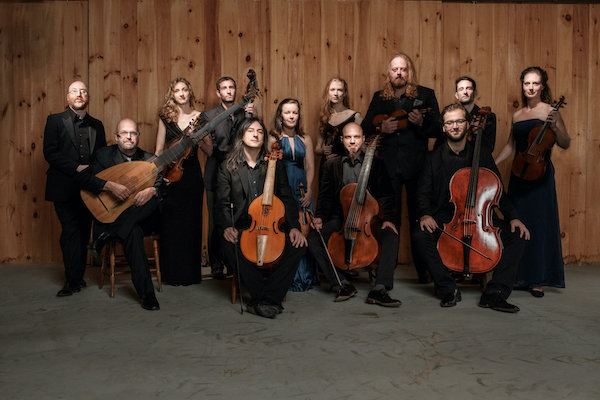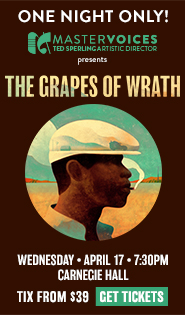A whole lotta Johanns in Acronym’s convivial program for Music Before 1800
The Super Bowl was still a couple of hours from kickoff but members of the self-styled “baroque big band” Acronym sounded grateful just the same for the robust turnout on Sunday afternoon at Corpus Christi Church in Morningside Heights.
“I heard that there is some sort of sports ballgame,” Kivie Cahn-Lipman, the group’s tenor violist and program scholar, said to chuckles during an early break in “Ad Astra: To The Stars,” a brisk set of sonatas and more played with convivial grace and conversational flair.
Sunday’s concert was the fourth in a season series that has marked the resumption of live, in-person events by Music Before 1800, a presenter of pre-classical music now in its 47th year after unavoidable pandemic absences. So there were other reasons to be thankful besides resistance to the gravitational pull of event television. Cahn-Lipman noted that Acronym’s last MB1800 concert, in October 2019, was its last as a group before Covid.
The 11-member chamber ensemble played with masks on for a mostly masked audience, and were not hampered expressively by the facial coverings that remain—for now—standard-issue concert wear along with suits and evening dresses.
Acronym’s only issue on Sunday was the occasional stray pitch familiar to any group playing sensitive period instruments, although diligent tuning between selections paid off for with mostly spotless intonation.
The group focused on works from the middle and late 1600s that came after Europe’s Thirty Years War in a post-Renaissance period of musical revival. They opened with an upbeat Ciacona in B-flat Major by Johann Pezel, played in a sprightly triple meter with standout soloing by violinists Adriane Post and Beth Wenstrom, and a lively finishing gallop.
The Sonata da camera a5 in G minor by Johann Rosenmüller that followed was moodier, but not grim. An air of spirited challenge permeated even the more downbeat passages, as if the composer were describing how to bear sorrows with forward-looking poise.
Rosenmüller’s sonata was also one of the most soulful and interesting picks in Acronym’s ten-piece recital. If anything, it was played too early, before a clutch of handsome, courtly and mostly major-key sonatas. These little profiteroles were admirably short, and crisply arranged and played. But there were stretches in the 90-minute concert’s middle section where it was a little hard to tell a Bertali from a Krieger from a Drese. This post-war period of vital exchange and ferment might have also produced some formulaic jockeying among composers seeking commissions.
It sometimes fell to the musicians to put a distinguishing, improvised stamp on the music. Loren Ludwig, playing bass viol, applied frenetic continuo to Andreas Oswald’s Sonata a3 in E Minor. Solitary plucked notes by John Lenti on theorbo hung theatrically in the air on Johann Philipp Krieger’s Sonata a4 in F Major, and bounding low-end passages added playful character. Violone player Doug Balliett said afterward that the inspiration for the latter came from bandmate Ludwig watching his 18-pound cat suddenly spring to life.
The last Johann in Sunday’s program—there were four—was Johann Heinrich Schmelzer, and his Serenade a8 in A Major found Acronym shaking off the earlier compositional sameness with some of their strongest ensemble playing, and superb banter among violin and viola players including Edwin Huizinga, Johanna Novom and Kyle Miller.
Giovanni Valentini’s prancing, mood-swinging Sonata a5 in C Major set a brisk finishing pace for the concert’s last few selections. The pre-encore finale was uncredited. Possibly written by Schmelzer, it was aptly described as “very strange and wonderful” in an introduction by Huizinga, who contributed high-pitched whirrs and flurries before the whole piece dived into Elliot Figg’s organ-powered finishing drone — an ending made of pure sound.
The highlights of the encore, a sonata by Antonio Bertali, were the hypnotic overtones floating off of Huizinga’s strings and the almost apiary hum of Figg’s harpsichord work. With that, Acronym’s sporting tribute to optimism and renewal ended early enough for any football fans filing out of the church to find a bar with a flatscreen.
Streaming video of Acronym’s concert is available beginning February 20. Music Before 1800 continues February 27 with Piffaro, The Renaissance Band. mb1800.org



